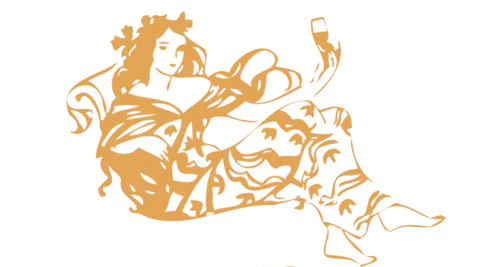Grauves, land of « champagne »
1500 acres of vineyards, Grauves is 420 feet high in the heart of the coast of chardonnay ,the village is located 2 miles away from Avize and 5 south of Epernay at the bottom of a valley where the Darcy river runs through a hilly landscape covered with vineyards and topped by forests.
Little hamlets jut out such as Montgrimaux, Rouge Maison, Favresse, la Tuilerie and in the valley le Moulin des prés used to be places for craftsmanship such as tiling, glassware and soon.
Its official origin dates back to 1224, nevertheless archeology helped to find out remote remains of B.C. periods in particular 3 prehistorical grottoes and Roman pipes and recently from the A.D. early middle ages period Merovingian tombs have been discovered.
A famous document from 1233 tells the earl Thibault IV ‘s huge 300 acres forest was given over to the local communities as a reward for their brave defense of the country limits of champagne.
After this date, the village life fell into oblivion and the archives of 1802 state the arrival of a teacher « Jacques Allais » who founded a sort of state school.
The village will stay secure from the ravaging effect of the first world war (1914-1918). In the 2nd world war a german kommandantur was fixed in the village but didn’t stay long.
Grauves church uphill prides upon a wooden statue of virgin mary carved out into o press screw that allow the saying Grauves Virgin Mary spin more turn than miracles.
The names of Grauves comes from latin « grava » (little pebble it has grown into Grauva Grauvez , Grama,Graulve,Groves and all sorts spelling before the actual one.
Géography
In the heart of the famous coast (cuesta) of chardonnay south of the cuesta Grauves (first vintage) a large part of the property is situated near our cellars essentially planted with chardonnay considered as the finest vinestock in champagne.
We also have chardonnay in Bisseuil in the montagne of Reims next to Mareuil and Avenay, pinot noir from Verneuil in the marne valley.
In the coast of Bars , Bligny and Bertignolles in the south east of champagne between Bar s/Seine and Bar s/Aube we also have pinot noir vineyards an adequate vine stock for this geographical and geological area.
Cépages
Three vinestocks are allowed to be planted in champagne vineyards (wholly around 66 000 acres).
Chardonnay (white grapes), pinot noir and pinot meunier (black grapes giving white juice) the skins being removed as well as stalks whin the crushing operates.
Our wines are only made from chardonnay and pinot noir, (we do not grow pinot meunier) and the vines are scattered on 5 different villages which allows a great variety of blends and tastes.
